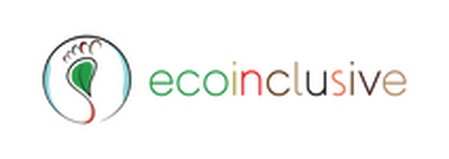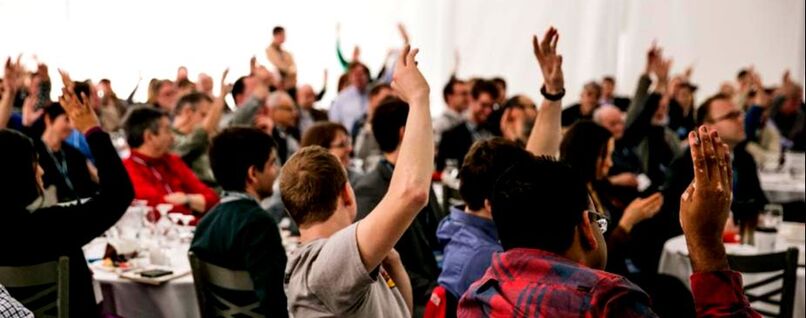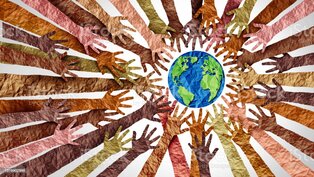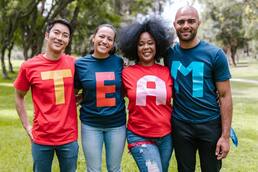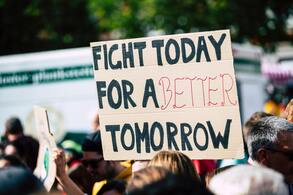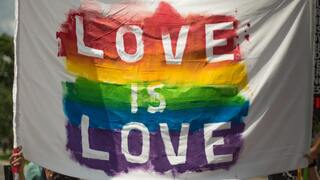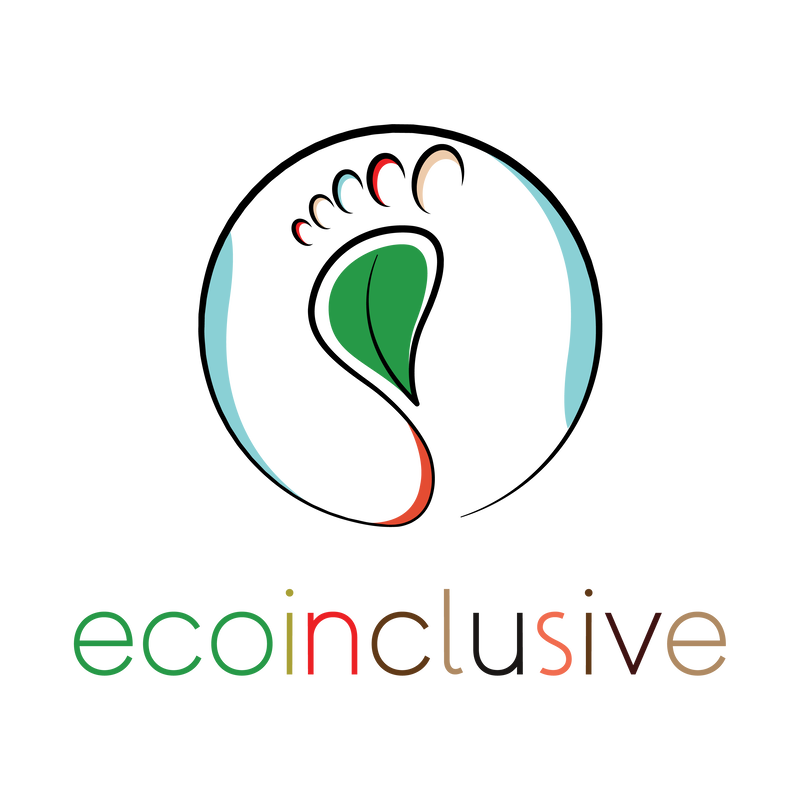TRAININGS AND EDUCATION
Ideally, training should be developed as a response to the needs expressed by key stakeholders including Leadership. As such, the list in this next section is merely a suggestion. Potential topics for these sessions may include, but are not limited to the following:
WORKSHOP TOPICS
BEGINNING YOUR JOURNEY
|
WHY DIVERSITY, EQUITY AND INCLUSION IS VITAL TO ORGANIZATIONAL GOALS
Why Diversity, Equity, and Inclusion? Diversity, equity, and inclusion have become buzzwords that have been placed strategically in organizational mandates, inspired the formation of DEI committees, and/or simply sparked critical dialogue around organizational culture. But do we know what these words really mean and how do we put this work into action in the environmental field. In this session participants will learn about how we incorporate DEI principles into our work and the importance of creating welcoming spaces. |
UNDERSTANDING PRIVILEGE & MICROAGGRESSIONS
Microaggressions are subtle verbal and non-verbal slights based on social group membership. Microaggressions are often the result of unconscious biases that lead to unintended discrimination against or degradation of those who are socially marginalized in a society, whether for skin color, gender, sexual orientation, age, language, origin, religion, disability, or any other characteristic. Raising our awareness of systems and bias allows us to rethink the ways in which we approach hiring, inclusion, organizational culture and relationships with stakeholders. The session provides an understanding of how privilege and bias work and ways we can disrupt microaggression patterns and have tough conversations.
Microaggressions are subtle verbal and non-verbal slights based on social group membership. Microaggressions are often the result of unconscious biases that lead to unintended discrimination against or degradation of those who are socially marginalized in a society, whether for skin color, gender, sexual orientation, age, language, origin, religion, disability, or any other characteristic. Raising our awareness of systems and bias allows us to rethink the ways in which we approach hiring, inclusion, organizational culture and relationships with stakeholders. The session provides an understanding of how privilege and bias work and ways we can disrupt microaggression patterns and have tough conversations.
EXAMINING UNCONSCIOUS BIAS
We all bring unconscious biases into the workplace. These deeply subconscious attitudes span race, gender, appearance, age, wealth and much more. They influence everything from the neighborhood you live in, to the employee you promote and the one you don’t. These biases are reflexively triggered without our knowledge, they are virtually unnoticeable. Our unconscious biases are hidden. Although we are unaware of them they influence our beliefs about and behavior toward others. This workshop focuses on the implicit attitudes or stereotypes that shape how we engage others and make decisions in the workplace.
We all bring unconscious biases into the workplace. These deeply subconscious attitudes span race, gender, appearance, age, wealth and much more. They influence everything from the neighborhood you live in, to the employee you promote and the one you don’t. These biases are reflexively triggered without our knowledge, they are virtually unnoticeable. Our unconscious biases are hidden. Although we are unaware of them they influence our beliefs about and behavior toward others. This workshop focuses on the implicit attitudes or stereotypes that shape how we engage others and make decisions in the workplace.
ANTI-OPPRESSION TOPICS
|
SYSTEMS OF OPPRESSION
The combination of prejudice and institutional power can create systems that discriminates against some groups and benefits other groups. These systems enable dominant groups to exert control over target groups by limiting their rights, freedom, and access to basic resources such as health care, education, employment, and housing. Systemic oppression manifests on the individual, the interpersonal, the institutional, and the structural level. In this class we will examine the 4 I’s of oppression and how they are at play in our organization. |
ANTI-OPPRESSION AND INCLUSIVE PROGRAM DESIGN: 4 PART COHOR SERIES
Organizations have the opportunity and responsibility to be more inclusive of all communities and question dominant and privileged cultural perspectives. During the workshop, attendees will be introduced to the concept of unconscious bias, including in the development of projects and programs. Through a series of interactive virtual sessions, participants will examine privilege and bias concerning planning and programming. Participants will reflect on individual and organizational practices and develop strategies for creating engaging and meaningful programming for diverse audiences.
Organizations have the opportunity and responsibility to be more inclusive of all communities and question dominant and privileged cultural perspectives. During the workshop, attendees will be introduced to the concept of unconscious bias, including in the development of projects and programs. Through a series of interactive virtual sessions, participants will examine privilege and bias concerning planning and programming. Participants will reflect on individual and organizational practices and develop strategies for creating engaging and meaningful programming for diverse audiences.
DISMANTLING SYSTEMIC RACISM:STRATEGIES FOR STRUCTURAL CHANGE
This workshop addresses systemic racism and its pervasive effects on institutions. Participants will examine historical and current examples of systemic racism, and collaboratively brainstorm strategies to initiate structural changes that promote fairness and justice.
This workshop addresses systemic racism and its pervasive effects on institutions. Participants will examine historical and current examples of systemic racism, and collaboratively brainstorm strategies to initiate structural changes that promote fairness and justice.
HEALING FROM RACIAL TRAUMA: SELF-CARE AND COMMUNITY SUPPORT
Recognizing the toll of racial trauma, this workshop provides a safe space for individuals to explore self-care strategies and community support mechanisms. Participants will learn to navigate the emotional challenges of anti-racist work and build resilience.
Recognizing the toll of racial trauma, this workshop provides a safe space for individuals to explore self-care strategies and community support mechanisms. Participants will learn to navigate the emotional challenges of anti-racist work and build resilience.
MEDIA LITERACY FOR ANTI-OPPRESSION: ANALYZING STEREOTYPES IN MEDIA
This media-focused workshop examines the role of media in perpetuating stereotypes and biases. Participants will learn to critically analyze media messages, identify harmful narratives, and develop media literacy skills to counter oppressive representations.
This media-focused workshop examines the role of media in perpetuating stereotypes and biases. Participants will learn to critically analyze media messages, identify harmful narratives, and develop media literacy skills to counter oppressive representations.
RESTORATIVE JUSTICE AND INCLUSIVITY: HEALING THROUGH DIALOGUE
Rooted in the principles of restorative justice, this workshop offers participants a transformative approach to conflict resolution and having courageous conversations. Through immersive role-playing, and group discussions learners will gain the skills to engage in meaningful dialogue that heals relationships and repairs harm. Participants will explore how restorative justice can be applied within organizations and communities to address conflicts stemming from identity-based discrimination and exclusion. This workshop, will help attendees feel equipped to facilitate conversations that promote inclusivity, empathy, and a shared commitment to creating environments where everyone feels valued and heard.
Rooted in the principles of restorative justice, this workshop offers participants a transformative approach to conflict resolution and having courageous conversations. Through immersive role-playing, and group discussions learners will gain the skills to engage in meaningful dialogue that heals relationships and repairs harm. Participants will explore how restorative justice can be applied within organizations and communities to address conflicts stemming from identity-based discrimination and exclusion. This workshop, will help attendees feel equipped to facilitate conversations that promote inclusivity, empathy, and a shared commitment to creating environments where everyone feels valued and heard.
ENVIRONMENTAL JUSTICE TOPICS
|
ENVIRONMENTAL JUSTICE: LEGACY AND HISTORY
We can see a legacy of racism in the environmental disparities that current plague our nation and history tells a clear story about where we’ve landed today. Effects of past institutions have left racial and ethnic groups in disadvantaged social positions, and often times present institutions sustain the disadvantage of members of the racial groups unknowingly without immediate racist or discriminatory intent. This session will include a lecture on, and discussion of, the connections between socio-cultural inequity and environmental issues and a brief history of the EJ movement. |
ENVIRONMENTAL JUSTICE AND ENVIRONMENTAL EDUCATION
While traditional understandings of environmental education include studying ecology and other natural topics, environmental justice education fosters a critical understanding of the environment within the context of human political and social actions. Many marginalized communities experiencing environmental injustices are also those most vulnerable to the effects of the climate crisis. Environmental educators have a unique opportunity to empower communities living within impacted areas to take a stand for justice with the tools necessary to make change. Environmental educators can also educate those outside of impacted areas to stand up for global environmental justice. During this training we will discuss the connections between socio-cultural inequities, environmental issues and the power of EE to make change.
While traditional understandings of environmental education include studying ecology and other natural topics, environmental justice education fosters a critical understanding of the environment within the context of human political and social actions. Many marginalized communities experiencing environmental injustices are also those most vulnerable to the effects of the climate crisis. Environmental educators have a unique opportunity to empower communities living within impacted areas to take a stand for justice with the tools necessary to make change. Environmental educators can also educate those outside of impacted areas to stand up for global environmental justice. During this training we will discuss the connections between socio-cultural inequities, environmental issues and the power of EE to make change.
ENVIRONMENTAL RACISM: UNPACKING DISPARITIES AND SOLUTIONS
This workshop delves into the critical issue of environmental racism, exploring how marginalized communities often bear disproportionate burdens of environmental pollution and degradation. Participants will gain an in-depth understanding of the historical roots, contemporary impacts, and potential solutions to address environmental racism. By the end of the workshop, learners will have insights into advocacy strategies and policies that promote environmental justice and equity for affected communities.
This workshop delves into the critical issue of environmental racism, exploring how marginalized communities often bear disproportionate burdens of environmental pollution and degradation. Participants will gain an in-depth understanding of the historical roots, contemporary impacts, and potential solutions to address environmental racism. By the end of the workshop, learners will have insights into advocacy strategies and policies that promote environmental justice and equity for affected communities.
ORGANIZATION TOPICS
|
ORGANIZATION REVIEW LENS
During this workshop participants work together in a facilitated session to review their programs and consider changes. Participants will consider and talk about the effect that ableism, racism, sexism, homophobia, and poverty might have on how the programs have been built and how stories have been told before. Using the review lens of Accessibility, Race & Ethnicity Inclusivity, Gender, Sexual Orientation & Trans Inclusivity and Economic Equity participants will reflect on individual and organizational practices and develop strategies for creating engaging and meaningful programming for diverse audiences |
CREATING A MULTICULTURAL ORGANIZATION
Studies indicate that an organization that embraces and values inclusion as an integral part of its goals can have a positive impact on individual productivity, organizational effectiveness and sustained competitiveness. This workshop examines organizational culture, how it is formed and how to change it. Culture is defined as the shared traditions, beliefs, customs, history, folklore, and institutions of a group of people. It's a system of rules that are the base of what we are and affect how we express ourselves as part of a group and as individuals. Organizations have a "culture" of policies, procedures, programs, and processes, and incorporate certain values, beliefs, assumptions, and customs. Organizational cultures largely echo mainstream culture in its sense of time orientation, perception, and use of time. An organizational culture may not lend itself to cultural competence, so that's where skill building comes in. A culturally competent organization brings together knowledge about different groups of people -- and transforms it into standards, policies, and practices that make everything work.
Studies indicate that an organization that embraces and values inclusion as an integral part of its goals can have a positive impact on individual productivity, organizational effectiveness and sustained competitiveness. This workshop examines organizational culture, how it is formed and how to change it. Culture is defined as the shared traditions, beliefs, customs, history, folklore, and institutions of a group of people. It's a system of rules that are the base of what we are and affect how we express ourselves as part of a group and as individuals. Organizations have a "culture" of policies, procedures, programs, and processes, and incorporate certain values, beliefs, assumptions, and customs. Organizational cultures largely echo mainstream culture in its sense of time orientation, perception, and use of time. An organizational culture may not lend itself to cultural competence, so that's where skill building comes in. A culturally competent organization brings together knowledge about different groups of people -- and transforms it into standards, policies, and practices that make everything work.
ORGANIZATIONAL ASSESMENT SERIES
This 4 part session tackles an organizations toughest DEI issues and guides organizational leadership and team members in the creation of an Equity Strategic Plan. Team members will complete an assessment to help the organization establish a true benchmark of readiness to engage in equity work. The results will highlight areas that need attention and help set a focus for future goals. This assessment and facilitated conversations will guide the creation of and ongoing organizational JEDIA strategy, equipping teams with the tools to care for and sustain an inclusive culture long after consultants and trainers leave.
This 4 part session tackles an organizations toughest DEI issues and guides organizational leadership and team members in the creation of an Equity Strategic Plan. Team members will complete an assessment to help the organization establish a true benchmark of readiness to engage in equity work. The results will highlight areas that need attention and help set a focus for future goals. This assessment and facilitated conversations will guide the creation of and ongoing organizational JEDIA strategy, equipping teams with the tools to care for and sustain an inclusive culture long after consultants and trainers leave.
INCLUSIVE LEADERSHIP: BUILDING CULTURALLY COMPETENT ORGANIZATIONS AND EFFECTIVELY LEADING
DIVERSE TEAMS
To be a successful organization in today’s diverse and changing environment, we need inclusive leaders who are energizing and motivating. Studies indicate that an organization that embraces and values inclusion as an integral part of its goals can have a positive impact on individual productivity, organizational effectiveness and sustained competitiveness. Inclusive leaders have the ability to create a workplace environment where each employee feels authentically valued, respected, and engaged in achieving the organizational mission and vision. During this workshop participants will discuss how unconscious bias can influence systems and institutions and what cultural competence looks like at the organizational level.
DIVERSE TEAMS
To be a successful organization in today’s diverse and changing environment, we need inclusive leaders who are energizing and motivating. Studies indicate that an organization that embraces and values inclusion as an integral part of its goals can have a positive impact on individual productivity, organizational effectiveness and sustained competitiveness. Inclusive leaders have the ability to create a workplace environment where each employee feels authentically valued, respected, and engaged in achieving the organizational mission and vision. During this workshop participants will discuss how unconscious bias can influence systems and institutions and what cultural competence looks like at the organizational level.
COLLABORATIVE COMMUNITY ENGAGEMENT
This workshop focuses on building meaningful connections with diverse communities through collaborative programming. Participants will gain insights into effective community partnerships and the co-creation of programs and experiences.
This workshop focuses on building meaningful connections with diverse communities through collaborative programming. Participants will gain insights into effective community partnerships and the co-creation of programs and experiences.
INCLUSIVE PROGRAM DESIGN- INTERPRETATION & ENVIRONMENTAL EDUCATION
|
DISABILITY AND ENVIRONMENTAL ACCESS: INCLUSIVE SPACES FOR ALL
Explore the intersections of disability rights and environmental access, focusing on creating inclusive spaces that cater to diverse abilities. This workshop covers topics such as accessible design, outdoor recreation, programming for different learning styles/neurodivergence and ensuring equitable access to nature. Participants will learn strategies for designing environments that consider the needs of individuals with disabilities, fostering an inclusive and equitable outdoors. CRAFTING INCLUSIVE INTERPRETIVE MESSAGES
Learn how to develop interpretive messages that resonate with a wide range of audiences. This workshop focuses on incorporating diverse perspectives and culturally sensitive language to ensure that your interpretive content is inclusive and engaging. |
ACCESSIBLE PROGRAM DESIGN
Dive into the world of accessible design for programming and materials. This workshop covers creating content that is accessible to people with disabilities, including considerations for sensory, cognitive, and mobility needs.
Dive into the world of accessible design for programming and materials. This workshop covers creating content that is accessible to people with disabilities, including considerations for sensory, cognitive, and mobility needs.
INCLUSIVE OUTDOOR EDUCATION STRATEGIES
This workshop focuses on incorporating JEDIA principles into outdoor education programs. Participants will explore strategies to make outdoor experiences accessible and welcoming for people from all backgrounds.
This workshop focuses on incorporating JEDIA principles into outdoor education programs. Participants will explore strategies to make outdoor experiences accessible and welcoming for people from all backgrounds.
STORYTELLING FOR SOCIAL CHANGE
Explore the power of storytelling in driving social change and promoting JEDIA values. Participants will learn how to tell stories that challenge biases, highlight underrepresented narratives, and inspire empathy.
Explore the power of storytelling in driving social change and promoting JEDIA values. Participants will learn how to tell stories that challenge biases, highlight underrepresented narratives, and inspire empathy.
CULTURAL COMPETENCE IN INTERPRETIVE OUTREACH
Explore strategies to enhance cultural competence when conducting interpretive outreach activities. This workshop delves into understanding cultural nuances, avoiding stereotypes, and effectively engaging with diverse communities.
Explore strategies to enhance cultural competence when conducting interpretive outreach activities. This workshop delves into understanding cultural nuances, avoiding stereotypes, and effectively engaging with diverse communities.
VISIONING FOR EFFECTIVE ALLYSHIP
An ally is a person who stands up for others to proactively build inclusion in our communities, schools and workplaces. Allyship is a lifelong process of building relationships based on trust, consistency, and accountability with marginalized individuals and/or groups of people. Not self-defined—work and efforts must be recognized by those you are seeking to ally with. During this workshop participants learn about all the ways they can be a stronger ally through practical and actionable steps. If you are a individual seeking to promote equity within your community, this workshop will equip you with tools to be an active ally for through methods like naming white privilege, centering people of color, understanding systems of oppression, and continuing your own self-work journey.
An ally is a person who stands up for others to proactively build inclusion in our communities, schools and workplaces. Allyship is a lifelong process of building relationships based on trust, consistency, and accountability with marginalized individuals and/or groups of people. Not self-defined—work and efforts must be recognized by those you are seeking to ally with. During this workshop participants learn about all the ways they can be a stronger ally through practical and actionable steps. If you are a individual seeking to promote equity within your community, this workshop will equip you with tools to be an active ally for through methods like naming white privilege, centering people of color, understanding systems of oppression, and continuing your own self-work journey.
LGBTQ+ TOPICS
|
LGBTQ+ ALLYSHIP 101: NAVIGATING BEYOND BOUNDARIES
The LGBTQ+ Allyship 101 workshop offers a comprehensive introduction to allyship and advocacy for individuals seeking to create more inclusive environments. This workshop provides a space for individuals to explore the nuances of diverse LGBTQ+ identities, delve into the historical context of LGBTQ+ rights movements, and gain insights into the challenges and triumphs faced by LGBTQ+ individuals. From understanding terminology and pronouns to navigating the complexities of intersectionality, participants will emerge with a foundational understanding of LGBTQ+ identities and experiences. |
LGBTQ+ ALLYSHIP AND ADVOCACY: BEYOND THE BASICS
Building upon foundational knowledge of LGBTQ+ allyship, this workshop takes participants on a deeper exploration of diverse identities within the LGBTQ+ community. Through engaging discussions, historical context, and personal narratives, learners will gain a comprehensive understanding of the challenges faced by LGBTQ+ individuals, including those from marginalized backgrounds. Participants will learn effective strategies for allyship and advocacy that go beyond mere support to active and meaningful engagement. By the end of the workshop, attendees will possess the knowledge and tools to be effective allies, fostering an inclusive environment that respects and uplifts LGBTQ+ voices and experiences.
Building upon foundational knowledge of LGBTQ+ allyship, this workshop takes participants on a deeper exploration of diverse identities within the LGBTQ+ community. Through engaging discussions, historical context, and personal narratives, learners will gain a comprehensive understanding of the challenges faced by LGBTQ+ individuals, including those from marginalized backgrounds. Participants will learn effective strategies for allyship and advocacy that go beyond mere support to active and meaningful engagement. By the end of the workshop, attendees will possess the knowledge and tools to be effective allies, fostering an inclusive environment that respects and uplifts LGBTQ+ voices and experiences.
QUEER ECOLOGY: EXPLORING LGBTQ+ IDENTITIES AND ENVIRONMENTAL ADVOCACY
Explore the intersection of LGBTQ+ identities and environmental advocacy in the realm of queer ecology. This workshop delves into the ways in which LGBTQ+ individuals engage with nature, ecological spaces, and environmental activism and will give a greater understanding of nature through queerness disrupting the myth of heteronormativity in nature. Participants will gain insights into inclusive approaches to environmental advocacy, promoting acceptance, visibility, and justice for queer communities within ecological discussions.
Explore the intersection of LGBTQ+ identities and environmental advocacy in the realm of queer ecology. This workshop delves into the ways in which LGBTQ+ individuals engage with nature, ecological spaces, and environmental activism and will give a greater understanding of nature through queerness disrupting the myth of heteronormativity in nature. Participants will gain insights into inclusive approaches to environmental advocacy, promoting acceptance, visibility, and justice for queer communities within ecological discussions.
INTERSECTIONALITY IN ACTION: NAVIGATING COMPLEX IDENTITIES
In this workshop, participants will embark on a journey of understanding how intersecting identities shape experiences and perspectives. Delving into the nuances of race, gender, sexuality, ability, and other social dimensions, learners will explore how these intersections impact individuals' lives. Through interactive discussions, and practical exercises, participants will not only gain insights into the challenges faced by individuals with multiple identities but also learn strategies for fostering an inclusive environment that recognizes and supports their unique experiences.
In this workshop, participants will embark on a journey of understanding how intersecting identities shape experiences and perspectives. Delving into the nuances of race, gender, sexuality, ability, and other social dimensions, learners will explore how these intersections impact individuals' lives. Through interactive discussions, and practical exercises, participants will not only gain insights into the challenges faced by individuals with multiple identities but also learn strategies for fostering an inclusive environment that recognizes and supports their unique experiences.
ADDITIONAL WORKSHOPS
- ORGANIZATIONAL ASSESMENT SERIES
- TOOLS FOR INCLUSIVE LEADERSHIP: BUILDING EFFECTIVE ALLYSHIP SKILLS
- ANTI-RACIST ALLYSHIP
- OUTDOORS FOR ALL
